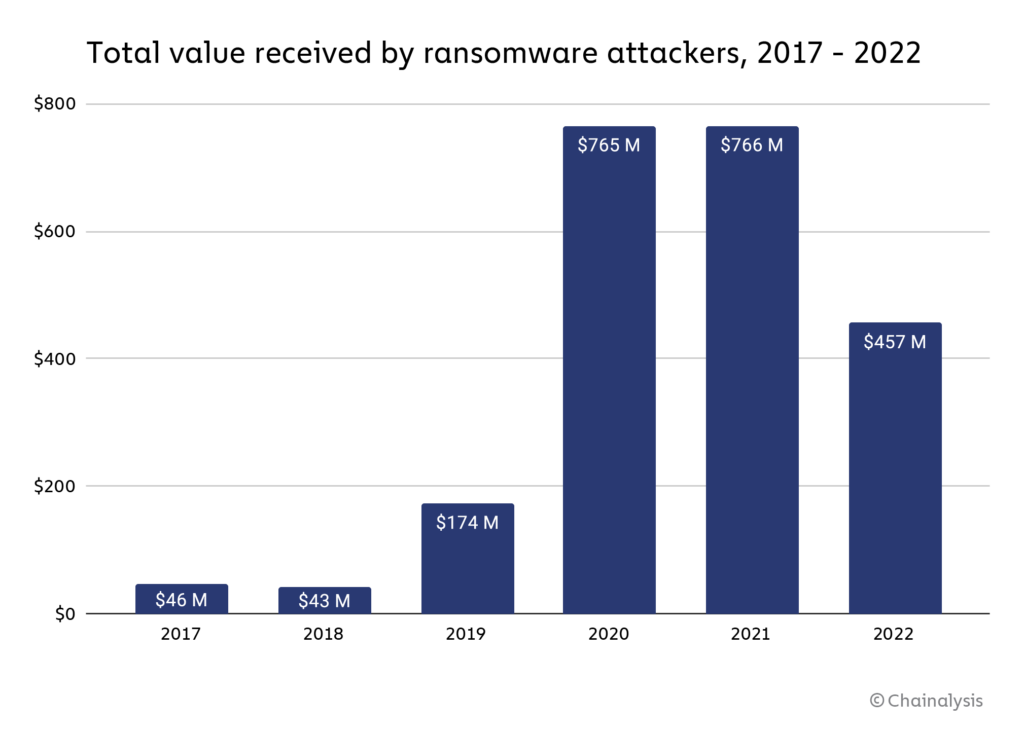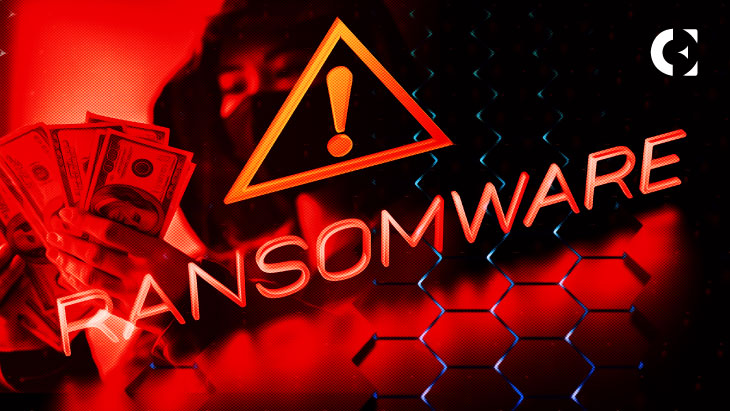- Ransomware attackers extorted $456 million in 2022 compared to $765 million in 2021.
- In 2019, only 24% of victims refused to pay attackers, but the figure doubled recently.
- Attackers often send their stolen funds to centralized exchanges to convert to fiat.
The illegal revenue accruing to crypto criminals from ransomware exploits declined in 2022 as more victims refused to pay, according to recent data published by market intelligence firm, Chainalysis.
The report noted that Ransomware attackers could only extort $456 million from victims in 2022 after stealing nearly twice that value in the previous year. Chainalysis hinted that the actual figures could be much higher as there are crypto addresses controlled by ransomware attackers yet to be identified on the blockchain and incorporated into its data.
The analytic firm noted that the drop in revenue does not imply a decline in ransomware attacks. Instead, according to research from cybersecurity firm Fortinet, the exploit exploded in 2022, with over 10,000 unique ransomware strains in operation in the first half of the year.
However, their revenue has dropped as victim organizations increasingly refused to pay them. In 2019, only 24% of victims refused to pay their attackers, and the figure doubled to more than twice that number in 2022.
Notably, ransomware is a type of malicious software that takes over a person’s or organization’s data, encrypts it, and threatens to publish the information unless the victim pays a ransom fee.

Furthermore, according to the analytics firm, ransomware attackers often send funds they successfully swindled to centralized exchanges to convert to fiat currency. The share of ransomware funds going to mainstream exchanges grew from 39.3% in 2021 to 48.3% in 2022, while the share going to high-risk points fell from 10.9% to 6.7%.
Disclaimer: The information presented in this article is for informational and educational purposes only. The article does not constitute financial advice or advice of any kind. Coin Edition is not responsible for any losses incurred as a result of the utilization of content, products, or services mentioned. Readers are advised to exercise caution before taking any action related to the company.









